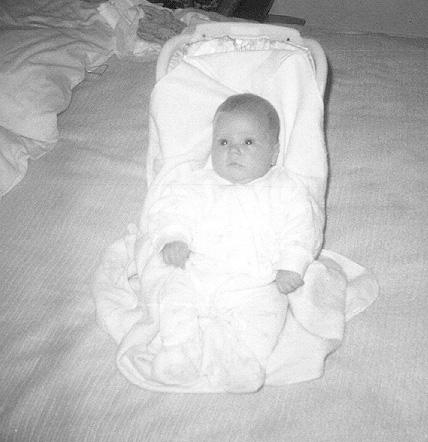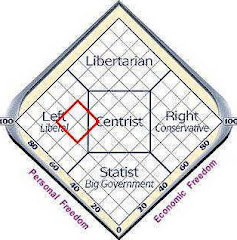I was a doctoral student, studying the links between poverty and mental health. I worked at a center where dozens of professors, post-doctorate scholars, and graduate students research poverty and mental illness. Yet, I could not breathe normally within the walls of the poverty research center. After I spent time there, I drove home barely able to keep my foot steady on the accelerator; my foot, as the rest of me, was usually shaking badly. The anxiety was not related to the stresses of graduate school or research. It’s just that I suspect any poor person would feel uncomfortable in the middle class surroundings of the poverty center. Some of the other workers with hidden poverty in their backgrounds have vocalized the same feelings. I found this situation ironic.
The people who work at the poverty center are very professional. There’s nothing wrong with being professional, but such customs as dressing formally are difficult for someone from a low-income background. It was subtle, but I have noticed that my less-than-spiffy clothing draws disdainful glances. I wanted to explain that along with growing up on welfare, I have accumulated school debt and personal debt that dissuade me from buying clothes. Money is tight on a graduate student’s budget, and I also had custody of my younger brother and sister. Most of my coworkers did not know the reasons I cannot afford to wear expensive clothes. I wondered if they have ever considered the source of the differences between us.
Apart from the superficial differences between myself and my coworkers, there are mannerisms and social mores that I tried, often unsuccessfully, to emulate. I lived in fear that my customary style of speech, sense of familiarity with strangers, and my brand of humor will slip through my facade. For example, my younger brother was awaiting sentencing for drug dealing. When my mother and I created his birthday greeting, we enclosed a Monopoly© “Get out of jail free” card. When I shared what I considered to be a clever idea with colleagues, they appeared mortified. It was clear that they did not understand our sarcasm, and they expected the poor to be humorless about their adversities.
When I did show a behavior more common to someone with a disadvantaged background, the tension in the room rises. For instance, there is a norm in scientific research centers to discount personal experience as a source of knowledge. Most of the people I know from my background value the personal account as a means of understanding. So, when someone in a seminar mentioned a “fact” about Head Start that was not true in my own Head Start experience, I voiced my dissenting thoughts. Because my comment was based on my own experience, and not on a statistic I had memorized, there was a moment of silence in the room. The conversation moved on with no further mention.
A poverty research center with an atmosphere that is jarring to a poor person’s sense of safety is a cause for concern. I strongly feel that social workers—in research or in the field—should make every attempt to create safe environments for people with different backgrounds. Furthermore, I question whether the knowledge of poverty my coworkers had gathered through books and journal articles was any more valid than the first-hand knowledge I had gained. Although I was new to feminist theories, it was my understanding that one school of feminist thought has come to value the “ways of knowing” that come from personal experience. I do not ask to dominate the knowledge base concerning economic disadvantage, because I understand that my experience cannot be generalized to others. On the other hand, it is my conviction that my insights could add to the conversation.
I have never been asked to be an expert speaker for a class studying poverty.
The longer I stayed in graduate school, the more convinced I became that I will never be asked to speak on poverty. Was I qualified to give such a talk? I think so. I do not remember a time when my family was not utilizing public income assistance, at least through food stamps. Actually, this isn’t quite true. During my fifth grade year, my family became ineligible for public welfare when aid to two-parent families was cut. As a result, we did not have heat in the house or regular meals. The Department of Social Services took custody of myself and my four younger siblings, because my parents were judged incapable of providing basic needs. Our foster families were paid a subsidy to care for us--financial assistance that far exceeded the monthly allotment once given as welfare to two-parent families.
Recently, speculation ran high in one of my classes on poverty. They were debating what will happen to families following welfare reform; I believed the discussion could be informed by my own life account. Unfortunately, I chose not to share anything personal, because I then understood the disinterest this type of contribution will face. Instead, I did speak up about the statistics I had heard or the theory I had read. This type of comment was accepted with nods of agreement; I guess everyone is on familiar territory when social work academics remain in the world of cold facts.
There are other sketches of poverty I could offer. I have spent a fair share of time in homeless shelters with my family. Some of the correlates of poverty, including divorce, domestic violence, mental illness, or substance abuse, have been regular occurrences in my background. Furthermore, I could speak to the toll of poverty on one’s mental health. I am pleased that data analysts show interest in the statistics about poor people. It is heartening for me to see many social workers go to areas of economic disadvantage to provide services. However, social work researchers and practitioners need to be conscious that a short-term brush with the poor is not equal to understanding their experiences. It is problematic when social workers begin to speak “on behalf” of the poor, without being inclusive of the people themselves.
During my junior year of college, I was interviewed in a focus group of people raised poor. Although some statistics indicate that a childhood spent in poverty is overcome once a person enters college—and thus the middle class—I can tell you there was terror in that focus group. We all recognized lasting effects of worrying about food or shelter. Our sense of self was impacted, because many of the group members mentioned feeling isolated from other college students, and inferior to people in general. Everyone in the group was unable to shop in standard shopping malls; we each felt as though the store help could recognize us as poor people, and thus they would suspect us of stealing. The list of similarities in our anxieties, and our diminished sense of self, was not coincidental. We all knew that poverty had taken its toll on our mental health. As yet, I have not found a single senior researcher interested in collaborating to investigate this phenomenon. Maybe this type of investigation into poverty is based too strongly in daily experience. In the course of day-to-day living, poor people encounter prejudice, discrimination, and pity. This type of experience is emotional in nature, and emotional reactions to poverty are not of interest to researchers. Poverty researchers study observable behaviors of the poor, such as teen pregnancy, joblessness, and criminal activity.
I cannot speak for all poor people, be they currently poor or living with a history of poverty, but I believe we should be given a voice with regard to our life experience. I have been in social work classes where a student dominated the conversation by giving a lengthy description of their personal circumstances; sometimes, these students seemed to be seeking a brief in-class therapy session, or they wanted to show their superior understanding of a topic. There are many ways to use life experience, and like any contribution, there may be abuses. Nonetheless, if research or in-class training included more information about the daily lives of poor people, middle class social workers might feel more comfortable interacting with us in class, in therapy sessions, or at poverty research centers. Poor people like myself could begin to feel less like objects, and more like contributing members of the academic world. How do thoughtful people who have not been poor best relate to those who have had such experience? They could begin by looking at their personal and professional relationships.
Tuesday, November 20, 2007
the Poverty Experts
Subscribe to:
Post Comments (Atom)


No comments:
Post a Comment